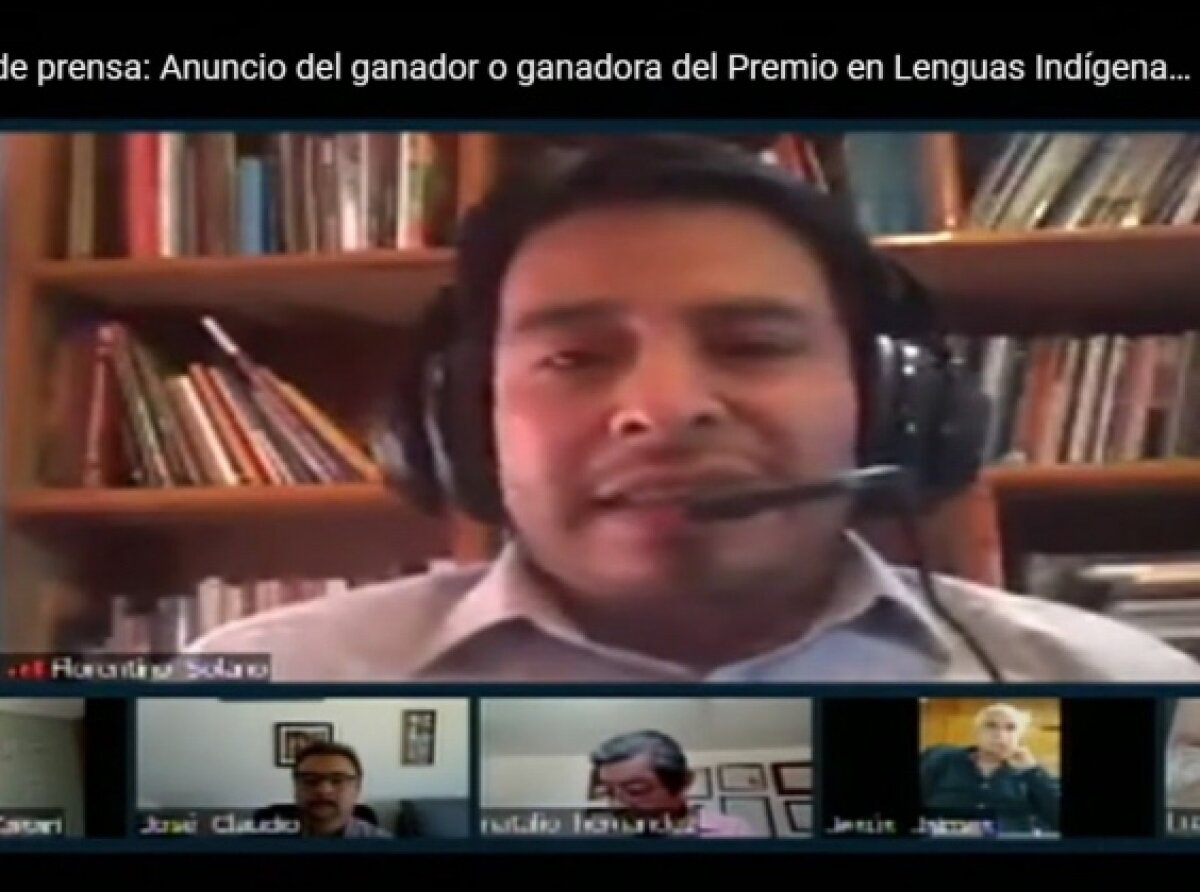Florentino Solano, originally from Guerrero, is the winner of the 2021 Indigenous Literature Prize of America (PLIA,) with his work “La Danza de las Balas.”
With the purpose of recognizing and stimulating the literary creation of writers and writers in indigenous languages, the launch of the ninth edition of the Indigenous Literature Award of America (PLIA) 2021, in which the Ministry of Culture of the Government of Mexico participates, as well as the University of Guadalajara, the Secretaries of Culture and Education of the state of Jalisco, and the National Institute of the Indigenous Peoples (INPI).
In this edition, PLIA awarded unpublished work in the chronicle genre, written or recorded orally in the author's mother tongue, expressing or recreating the aesthetic, semantic, and discursive elements of their culture and language, and contributing to the development, promotion, and literary dissemination of the indigenous language.
The jury's decision was announced during a virtual press conference by the representative of the Jury, Dr. Luz María Lepe Lira. Florentino Solano wrote the chronicle in the Tu´un savi (Mixtec) language.
“La Danza de las Balas,” or “The Dance of Bullets” in English, deals with violent events in the communities of Guerrero that are not in the media. It literally describes a tragic event; the firing of bullets in the procession of a community party, the response of the population, and the mediation between customary norms and the laws of the State. It is a text that invites reflection on the reality that exists in native peoples, and highlights the value of collective organization around their own values.
The jury, also made up of Dr. Elisa Loncon, a Mapuche academic, linguist, and activist for indigenous peoples; and the anthropologist Rodrigo de la Mora Pérez Arce, declared Florentino Solano's chronicle the winner after reviewing 33 proposals from four countries including Argentina, Peru, Guatemala, and Mexico.
During his participation via Zoom, Solano recounted the events that led him to discover his vocation as a writer. He stated that indigenous communities have always suffered violence of all kinds, and in the educational sphere, an attempt was made to eliminate languages in the classroom. When he entered high school there was a ban on speaking the mother tongue, and he had to learn Spanish.
“We had practically no books in original languages on hand, and I started reading in Spanish. When I was in high school I started working on some texts in Spanish. At university I focused on reviewing the first works that were forming the alphabet of my language, and from there I began to write in Tu´un savi,” Solano expressed.
"I started with narrative, then I included poetry and the chronicle has always been there, but it is difficult to publish a chronicle in this country, and much less in original languages," he said, and explained that his language is one of his prides and elements that he most appreciates of his identity.
The PLIA supports the authors with an economic prize of 300,000 pesos, the publication of their work, a wooden statue carved by the Jalisco sculptor Camilo Ramírez, a framed recognition from the state, and from the website of the Centro Universitario del Norte (CUNorte) support for the promotion the work of the winning authors and make them known. Those interested can consult those that have been uploaded at:
http://www.cunorte.udg.mx/plia/obras
Florentino Solano was born in 1982 in Metlatónoc, Guerrero. He has published the books All dreams, the dream (2003), the poetry book La luz y otros noches (2012), You will close your eyes to not see (2013) and Love and other mini-fictions (2017).
In 2003, Solano received the “José Azuela” Youth Civil Merit Award from the government of the State of Guerrero; In 2009 he received the San Quintín Joven Award, in Baja California, where he currently resides with his family, combining literature with music and agricultural work.

